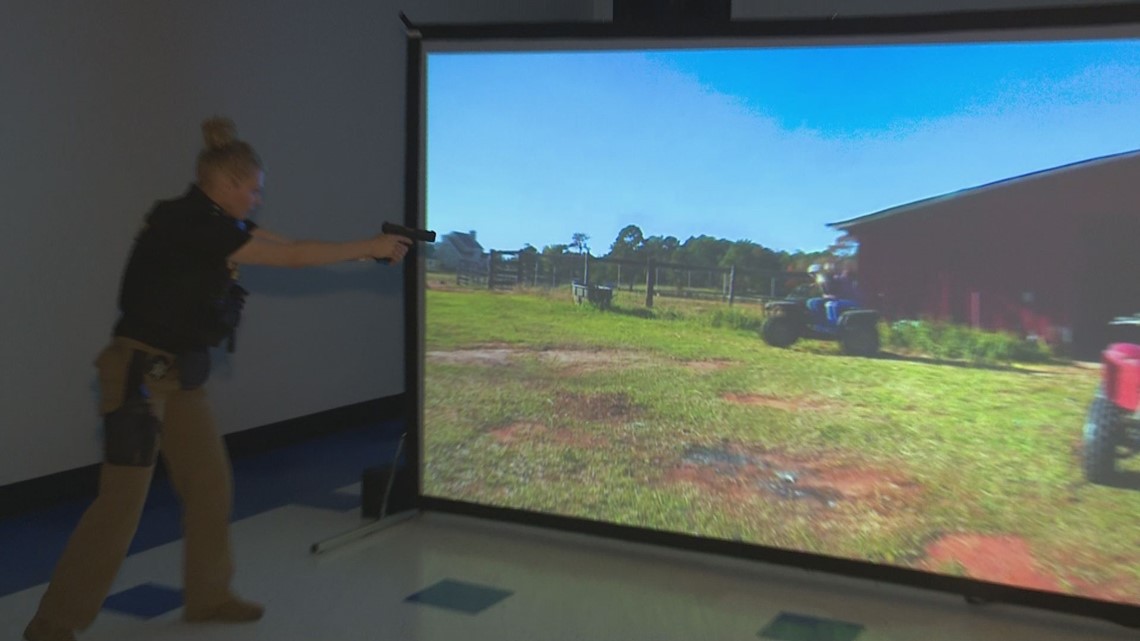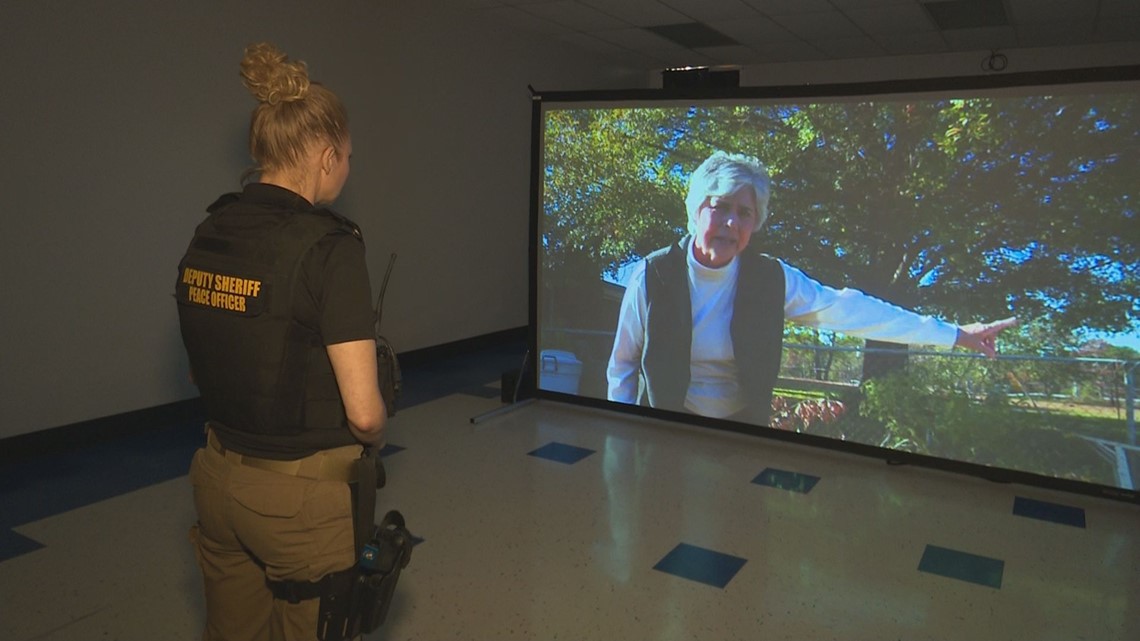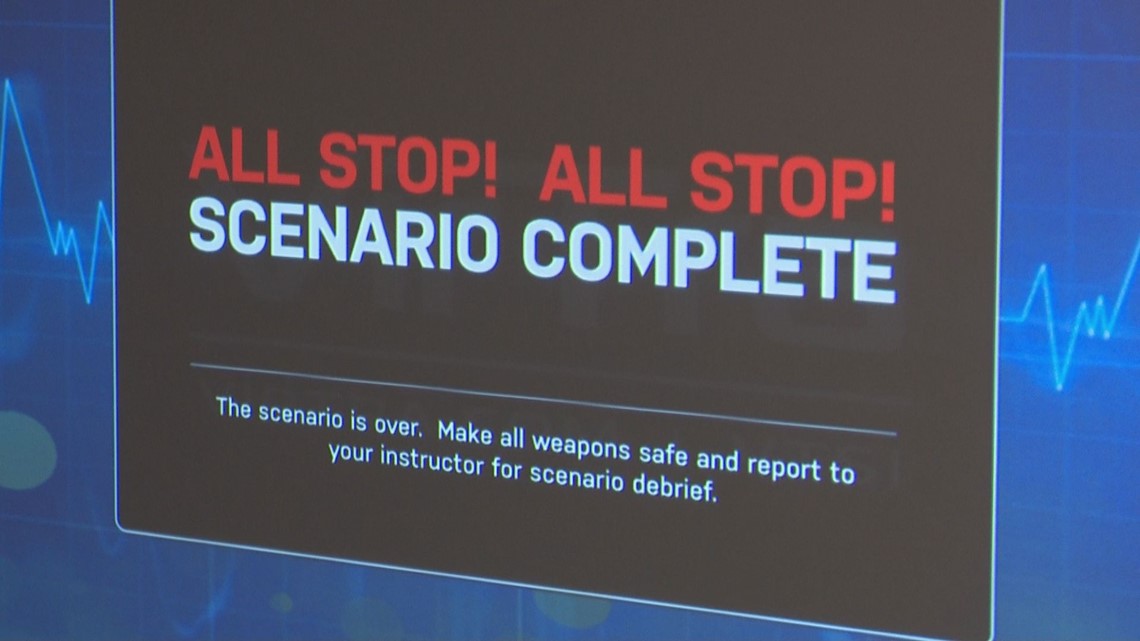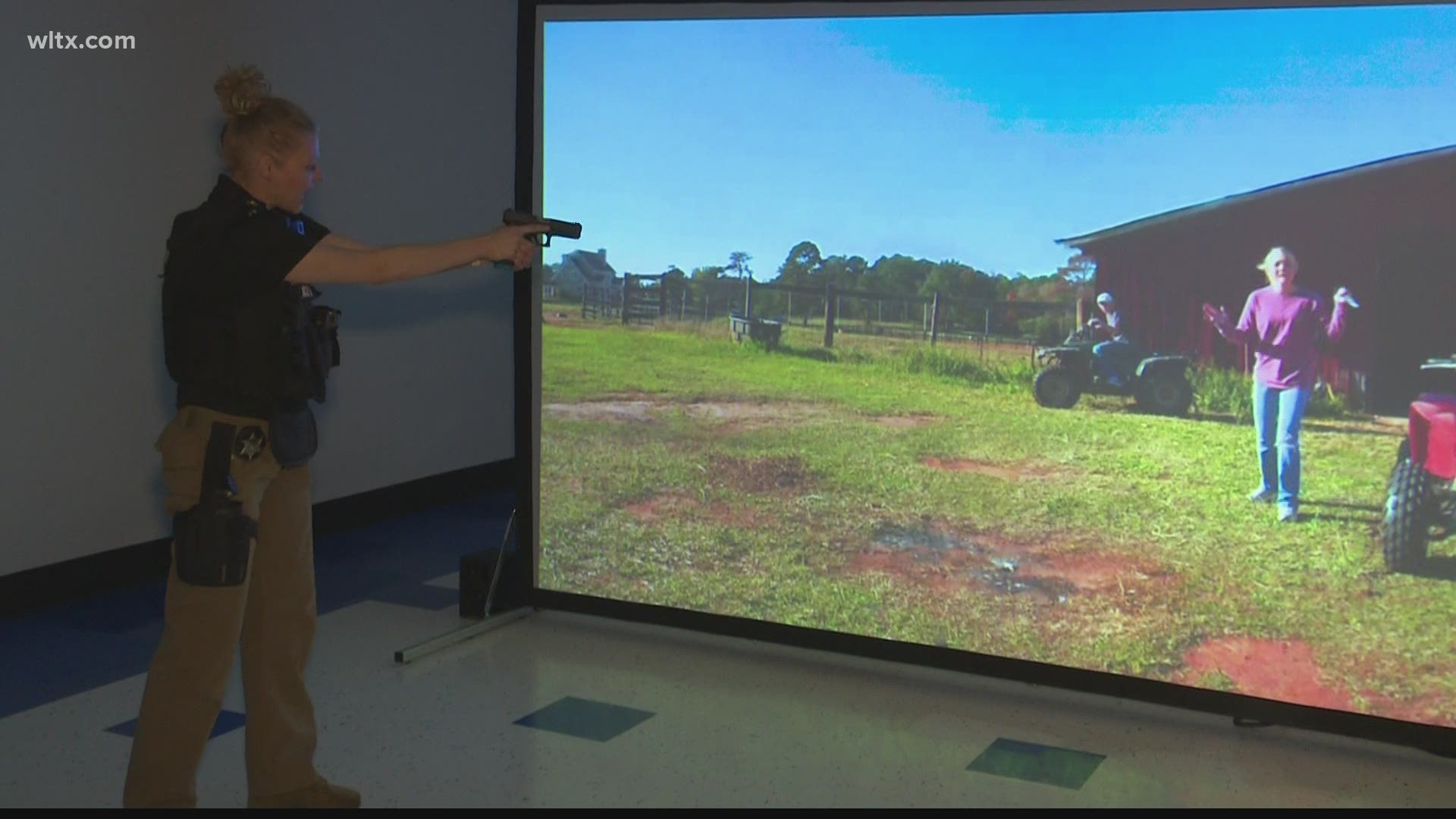COLUMBIA, S.C. — Research is underway in the Midlands to analyze how law enforcement makes decisions while responding to calls.
The study uses a virtual simulator to help deputies train on when they need to use deadly force and when it can be avoided.
Dr. Kyle McLean, Assistant Professor at Clemson University, says they've been planning this study since 2018.
"The primary goal of this study is to have officers make better decisions," said McLean. "We try to replicate real world conditions as much as possible."
The Richland County Sheriff's Department (RCSD) and Columbia Police Department are participating in the three-phase study.


The first phase is simulation training.
"It ranges everything from traffic stops, mental health calls to all sorts of every day calls for service," said McLean. "We code their behaviors that they go through. Do they asked closed-ended questions or open-ended questions, as well as use of force outcomes like drawing a gun or a Taser, when they do that, how quickly do they do that?"


Next, officers will undergo eight weeks of online training doing more decision-making exercises.
"In policing, oftentimes they're practicing those skills on the job in very high-risk situations," McLean explained. "So by doing things like this simulator and online training, we're providing them an opportunity to practice those skills in a low-risk environment where a failure doesn't hurt anybody."
In the third phase, officers go through different scenarios on the simulator to see if any improvements are made after training.


"Those simulations just re-enforce what we already do," said Summer Pearrow, a Training Instructor for the Training Division of the Richland County Sheriff's Department.
Pearrow says the South Carolina Criminal Justice Academy requires deputies to go through 40 hours of training every three years.
"Mental health training, criminal domestic violence, driving and shooting are required," said Pearrow.
For Richland County deputies, Pearrow says they do quarterly training similar to the research study's simulator, but in-person.
"What we run our deputies through are de-escalation as far as verbal de-escalation, use of force scenarios, when to shoot, when not to shoot," said Pearrow. "While you're never 100% prepared for anything, you're more prepared to be able to respond appropriately."


If the research shows positive results, RCSD says they plan to look into adding this same equipment to their agency.
This study is happening just weeks after the Anderson County Sheriff's Office said they're in the market for a similar $200,000 VirTra V-300 training simulator.
Officials say the machine gives instant feedback on a number of different deadly force situations and has a variety of virtual firearms.
The Clemson University study is an interdisciplinary collaboration with the Psychology Department at Wichita State University, the Criminal Justice Department at Michigan State and the University of South Carolina.
McLean tells News 19 they're in talks with the Charleston Police Department to conduct the same research study.

